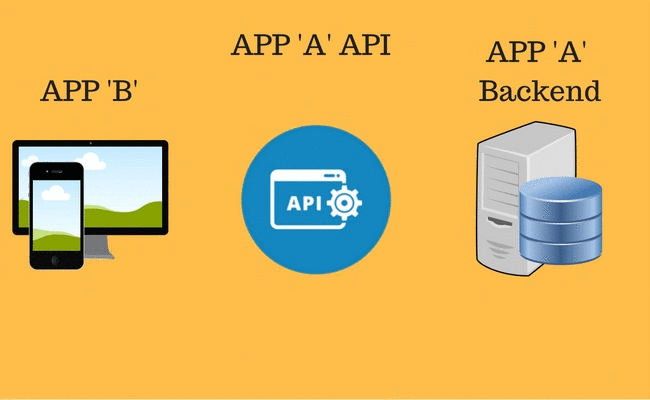Advanced features of the BuiltWith API and why you need an alternative!
Introduction
BuiltWith is a popular tool among b2b and SaaS companies. It is a technology profiler that channelizes business needs such as lead generation, eCommerce data, technology adoption, and so on. In addition, its API takes its standard to the next level opening up more possibilities for developers to access advanced data. However, popularity doesn't stop a tool from suffering certain inherent drawbacks. So, in this article, we will explore the advanced features and setbacks of BuiltWith API and the potential alternatives in the market.
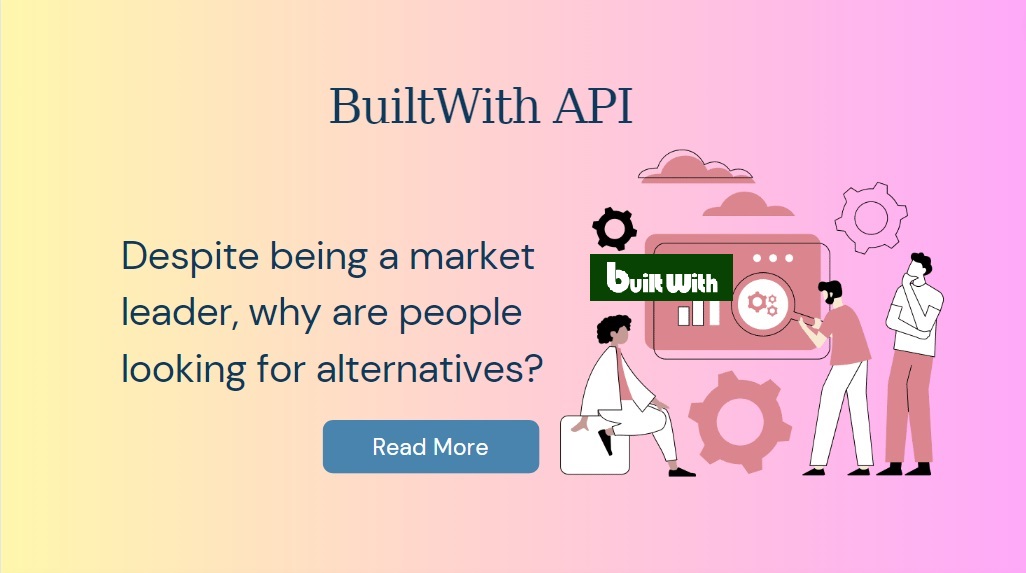
What is API?
First, let's get a basic idea of what an API is to move ahead with better clarity. API is like a middleman between two sources, where one has a request, and the other has a response. When circumstances prevent the sources from direct contact, a middleman acts as a bridge and connects them. Likewise, API bridges different software applications, allows their components to fuse seamlessly and provides a better user experience.
One typical example of API is Weather Data, which is omnipresent. Be it in the Google search, your smartphone weather app, or other smart home devices. A similar example could be Google Maps.

APIs are incredibly important for developers for several reasons:
- To reuse code and functionality across multiple applications.
- Saves time and effort, as well as improves the consistency and quality of the code.
- To link different software applications and services to create integrated software solutions greater than the sum of their parts.
- To build scalable software applications that can grow and adapt to changing needs by breaking down functionality into smaller, modular components.
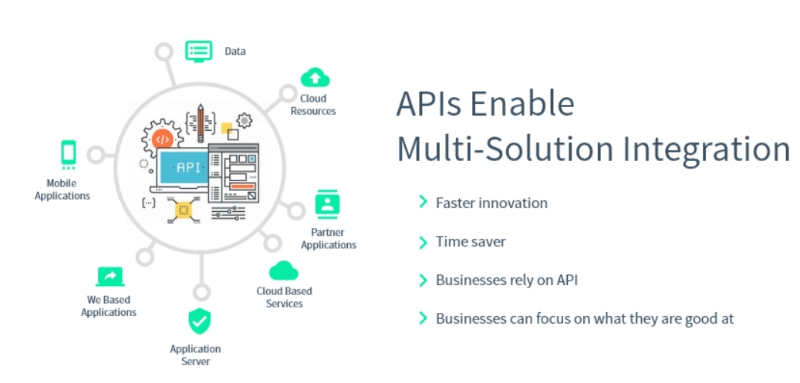
- By exposing functionality and data through APIs, developers can enable third-party developers to build new applications and services that extend the reach and impact of their software.
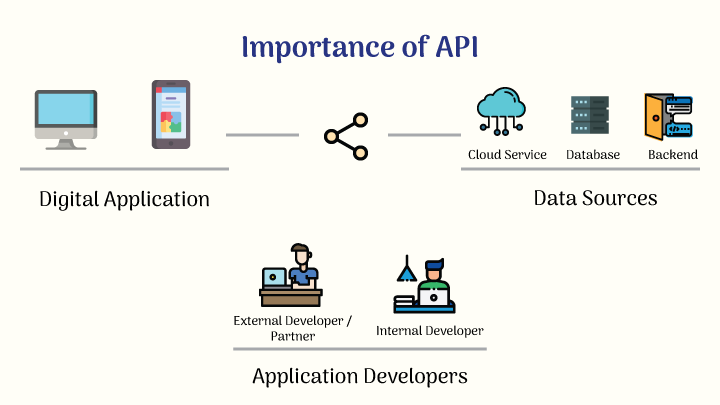
- Facilitates collaboration between developers and teams by providing room for standardized interface and documentation.
Understanding the BuiltWith API
As we mentioned, BuiltWith's API feature has exponentially transitioned the B2 B's desire for this platform. The intricacies of this platform enable programmatic access to technology and website data that is highly beneficial to developers and digital data analysts. The data available for extraction includes web frameworks, CMSs, tracking tools, CDN, etc. For instance, developers can integrate this data into their applications and automate their technology research. The BuiltWith API supports a long list of programming languages like Ruby, Python, PHP, and Java. It also provides parameters to customize the data given by the API.
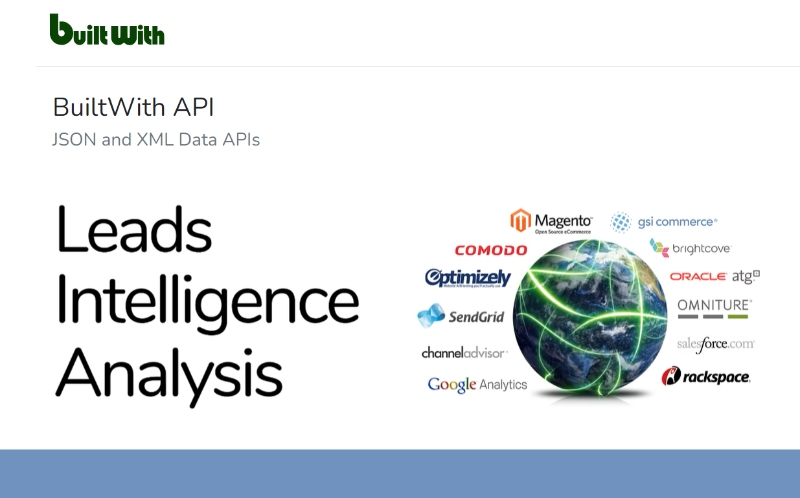
Advanced features and capabilities
Historical Technology Data
As the name, tech profiler, suggests, the primary job of the BuiltWith platform is to enable technology lookup. It tracks technology trends along with historical data of the same. Historical data helps to find how a website has transitioned and gain insights into the usage of various web technologies over a period. This way, developers can use updated tools and avoid the ones that have gone obsolete. For instance, imagine a scenario where you have wondered what CMS a website uses; BuiltWith API can tell you what it is.
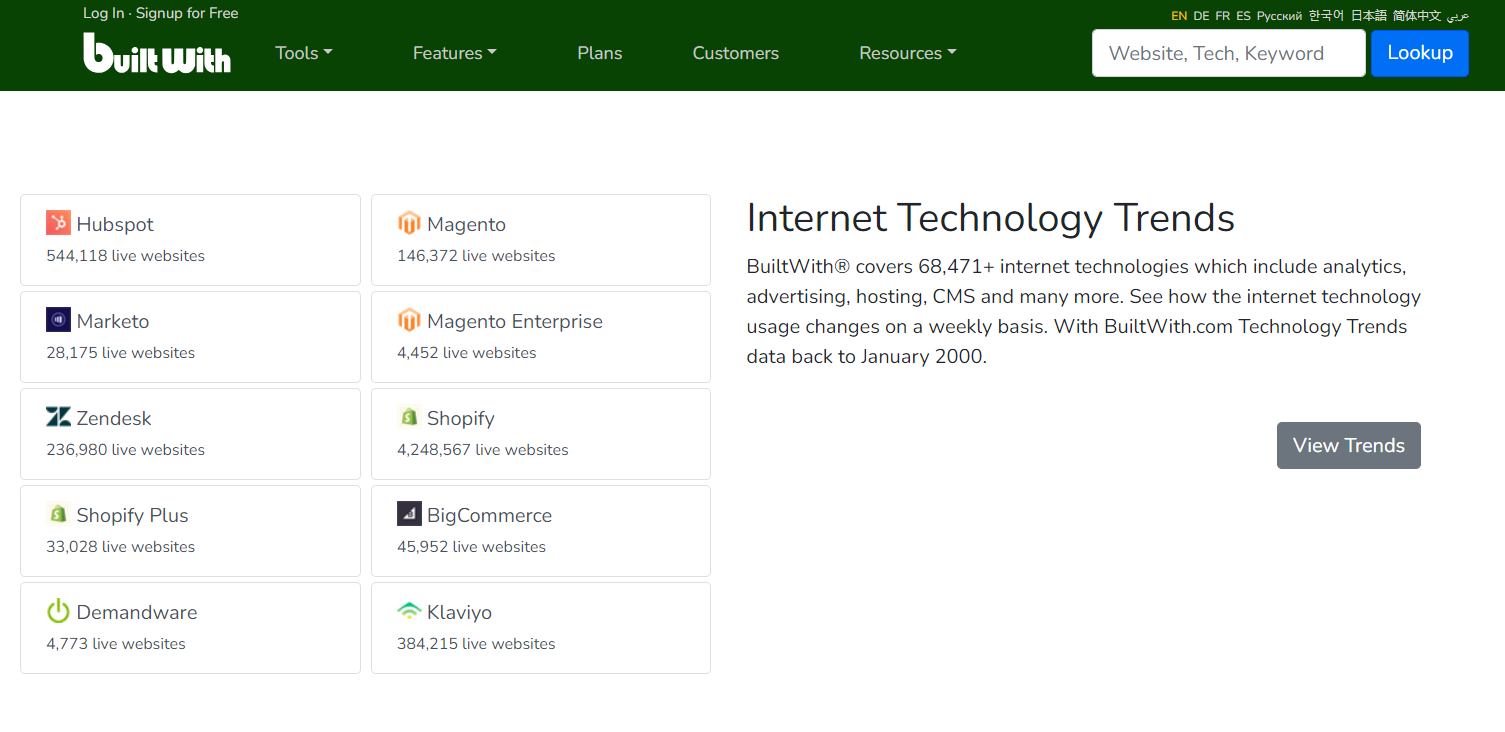
Cross-Technology Analysis
Following the technology lookup feature, cross-technology analysis supports a developer in finding how different technologies are used in conjunction. Complementary technologies can be found using this feature.
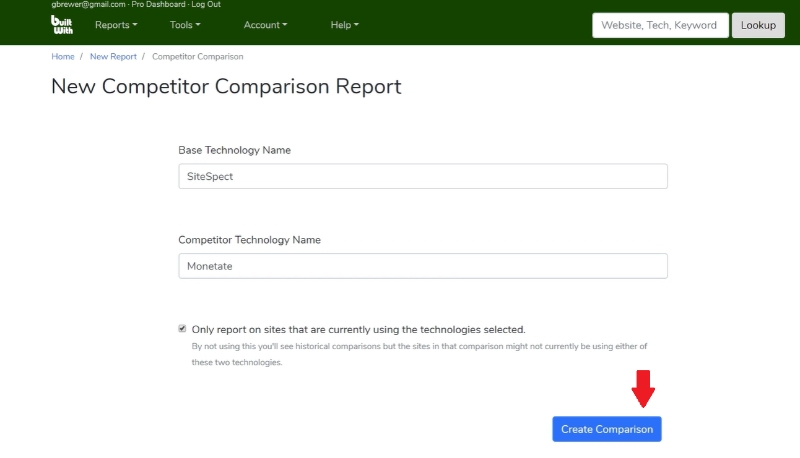
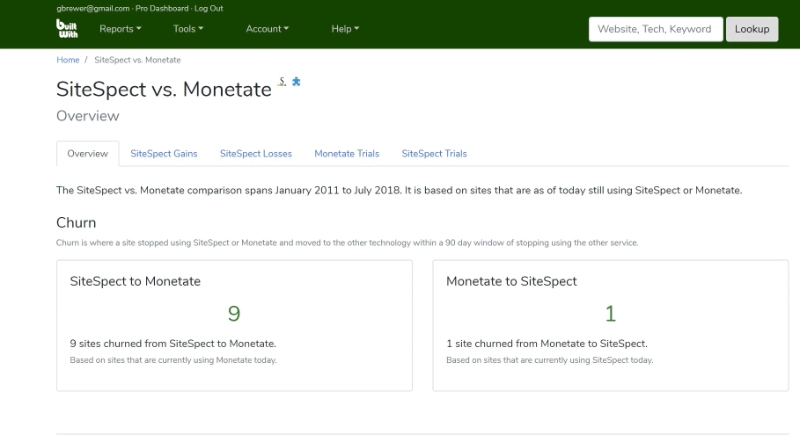
Customizable Data
We have already mentioned that BuiltWith API supports a plethora of programming languages. This bestows developers with the option to customize the data returned by the API. The API can be instructed with specific requirements which customize and alters the data returned by AI. The various filters available are location, industry, and website, among others.
Meta Data
Merely listing technologies is surely less attractive than the ones that come along with a bit of description. Yes, that is what BuiltWith API does.
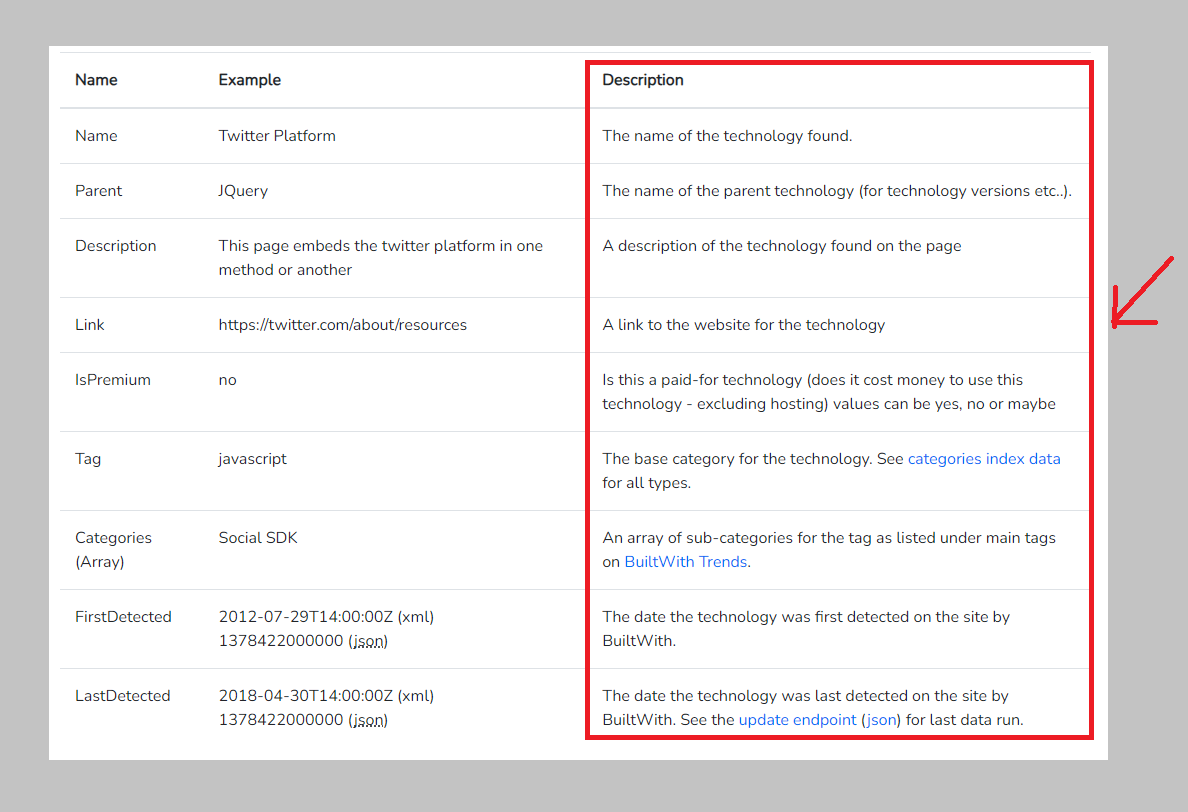
A meta description is attached to the technologies it detects. The content includes technology usage, categories, tags, purpose, and application of these tools. This helps developers understand why a company has adopted a specific technology brushing aside its market equivalents.
Keyword Spaces
The Keyword API helps users find top-ranking domains and sites that rank for specific keywords. This feature is useful for an SEO specialist assisting him in competitive analysis, finding top domains, and building an accurate keyword strategy.
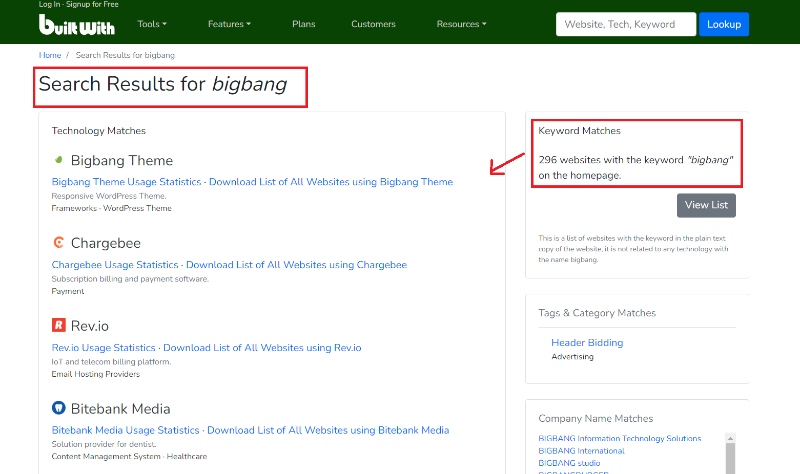
Relationship API
Quite similar to the previous feature, the Relationships API is an advanced feature that gives the user access to related domains and websites for a specified business. We have already written an article about niche sites, and this feature is a part of it. A user can pick out major players in the market, identify potential partnerships and understand the working of the business world.
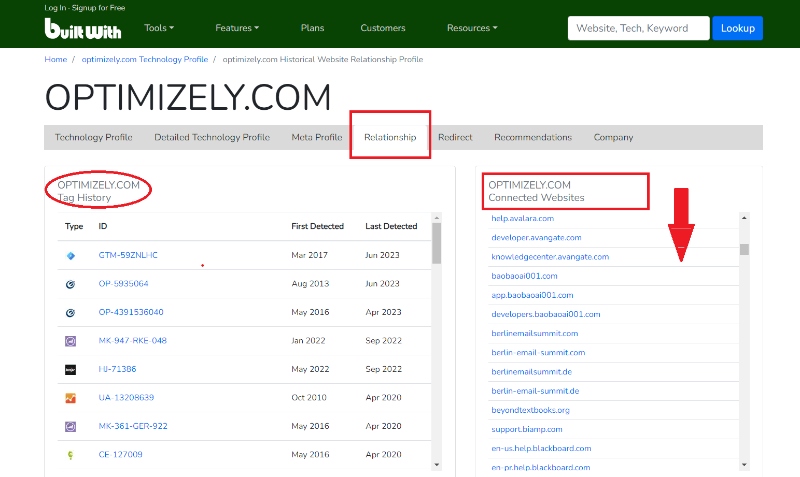
Indexed Lead Generation
A business executive can never say no to new leads. But most of the lead generation tools in the market spit out contacts with minimum to zero background checks. The contacts may not fit into the niche and might not even use the technology the seller is trying to market. That is where BuiltWith intervenes and works to resolve this issue. The Indexed Lead generation feature of the BuiltWith API provides tech-based leads that are indexed and tagged. This makes the searching and sorting process much easier as it generates leads based on the technology they use. This feature is a boon for the sales teams as it helps them fish out potential leads that use a specific technology which paves the way for better prospecting and targeting.
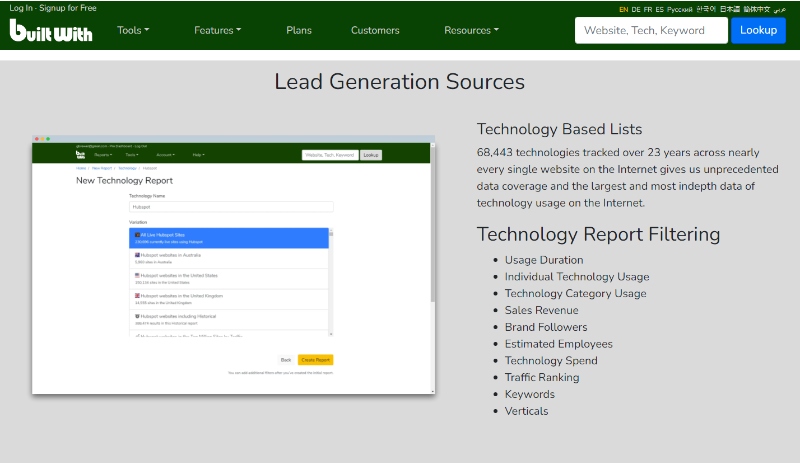
Integration with Other Tools
A technology that keeps to itself in a closeted zone will not go a long way. This is why BuiltWith API is designed to integrate with other tools and platforms. Some worthy integrations include Pardot, Zoho CRM, Dynamic 365, and Close.io. A Chrome extension is available to help analysts conduct real-time analysis and produce a report. Since this API uses machine learning, it helps uncover patterns that might not be apparent in manual analysis.
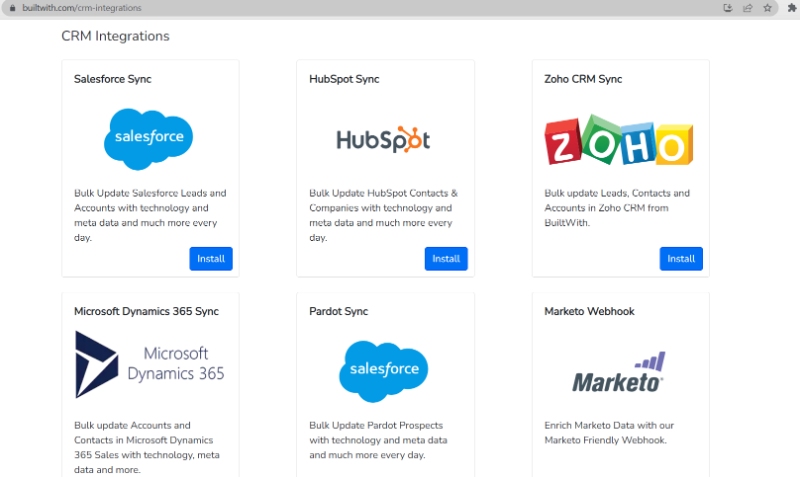
BuiltWith API can identify potential vulnerabilities
BuiltWith API can identify whether the current version of software used on a website is updated or outdated. This element encompasses CMS packages, web servers, and programming languages. This feature is mandatory as a website using outdated software packages may be vulnerable and cause security threats.
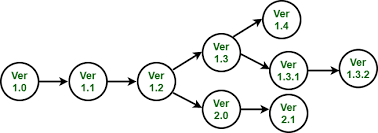
2. It can identify insecure protocols and services. Be it outdated SSL/TLS version or non-HTTPS connections, BuiltWith API intuitively picks it up and hoists a red flag. This prevents interception, tampering, and other possible attacks.
3. BuiltWith API is a good Malware and Adware detector. It prevents data theft and unwanted ads that redirect to malicious sites. It further zooms in to identify possible cross-site scripting, shortly XSS, and injection attacks.
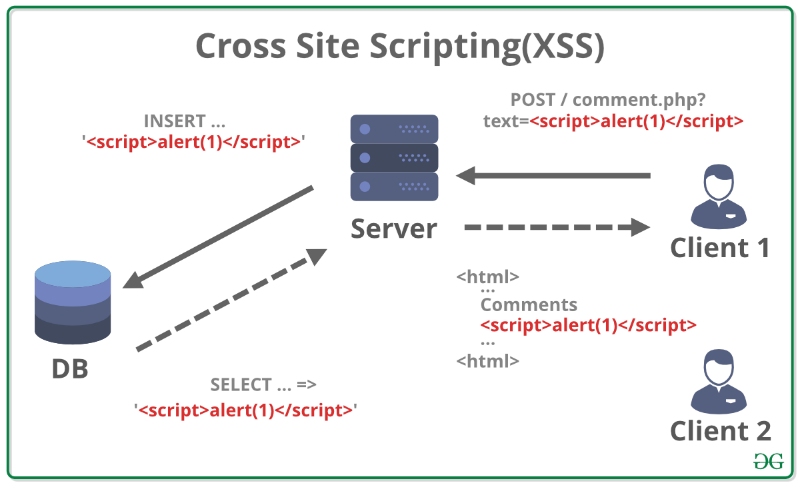
What could go wrong with a humble widget sitting on the screen? If that is what you were thinking, you are terribly misinformed. A plugin or widget could also pose a threat to user privacy and security. That is why BuiltWith API watches third-party tools ready to propose ways to mitigate risks that invade users' digital space.
Looking for an alternative check out
Challenges of BuiltWith API: Why B2B Needs an Alternative
Despite having features and producing laudable and reliable analytical reports, BuiltWith API still fails to impress critics in the tech field for the following reasons.
Limited Coverage
BuiltWith's technology scanners are designed with the urge to cover the top performers in the market. It claims to have covered over 33000 web technologies, which is quite a big number. However, we doubt the inclusion of niche technologies and less popular sites in its database. Also, this means API reports that make general predictions/conclusions when are non-inclusive of certain groups; the idea of gaining a complete picture is lost. Additionally, the API rate limiting is also a drawback, as users with a high number of API calls face restrictions that affect their ability to gather the required data.
Intrigued about technology profiling? Visit our blog!
Privacy and Security
BuiltWith has a long standing in the market, and they surely will not mess around with the privacy of others. However, their market sustenance alone doesn't guarantee the standards of how far they go to invade the privacy settings of a website. So, you need an alternative to tell you how far you can go and what services are possible to offer. On the other hand, as a user, your privacy and data security is equally important and has to be ensured.
Accuracy and Timeliness
The most expected attribute of a technology profiler is data reliability and accuracy. There are reports and consumer feedback that say the contact details aren't updated, and the website information isn't always accurate. These mistakes are unaffordable even if a user is ready to purchase a plan.
Data Overload
'More money, more features' has become the mantra of most tech tools today. We disagree here and say, 'Give want is needed.' Less is always better. Even if you load users with information and they don't know its purpose, the whole point is lost. Navigation becomes a pain when there is too much to scroll down. For people who aren't tech-savvy, the specific data they seek could become a needle in the haystack.
BuiltWith API alternatives
Here are some of the potential alternatives that can replace BuiltWith API listed based on the following criteria
- Cost-effectiveness
- Accessible Interface
- Standalone features
Datanyze
Datanyze has a simple and user-friendly interface. It offers free and premium packages that accommodate all categories of users. It has over 63 million direct dials and 84 million email addresses, all verified and accurate.
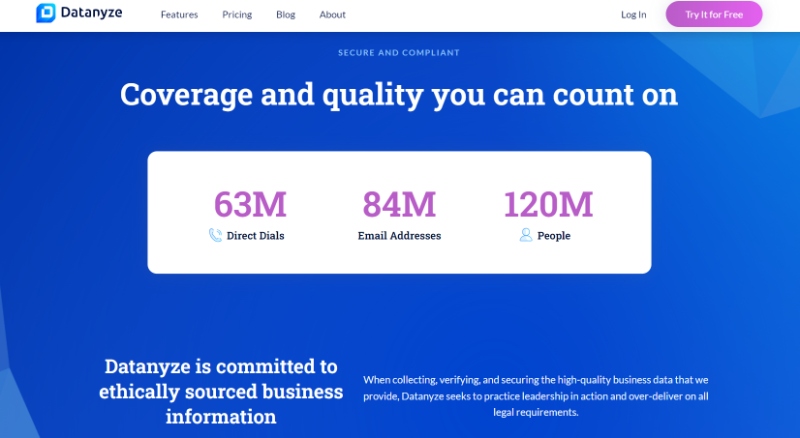
One unique feature is their 'refund policy' for inaccurate data; how cool is that?! The Chrome Extension of Datanyze offers a comprehensive yet smooth UX. Additionally, Datanyze is committed to providing ethically sourced data, and you can stay assured that you aren't abetting phishing.
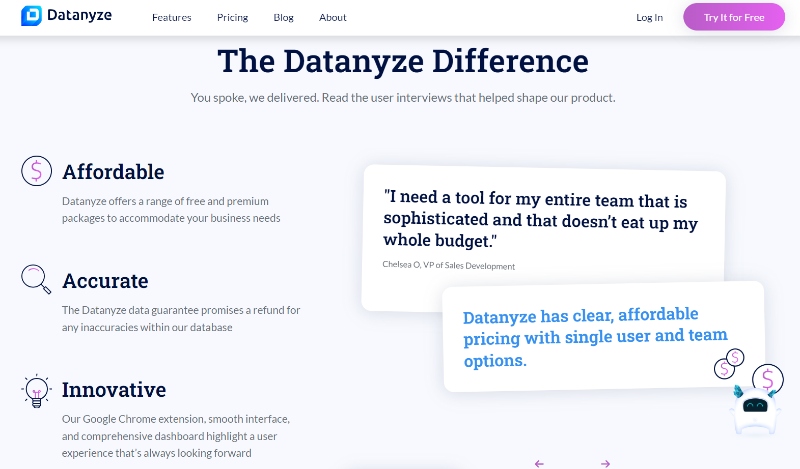
Ful.io
Of course, what do you think? We did have a seat reserved for us! We are the internet's biggest technographic encyclopedia, monitoring over 75k technographic signals and 300 million plus domains.
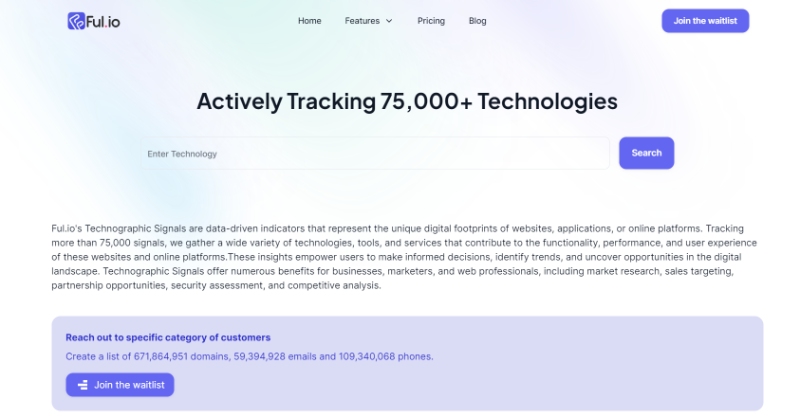
Every day new technographic signals are added to our database that help provide updated and actionable data. Ful.io prioritizes your privacy and security.
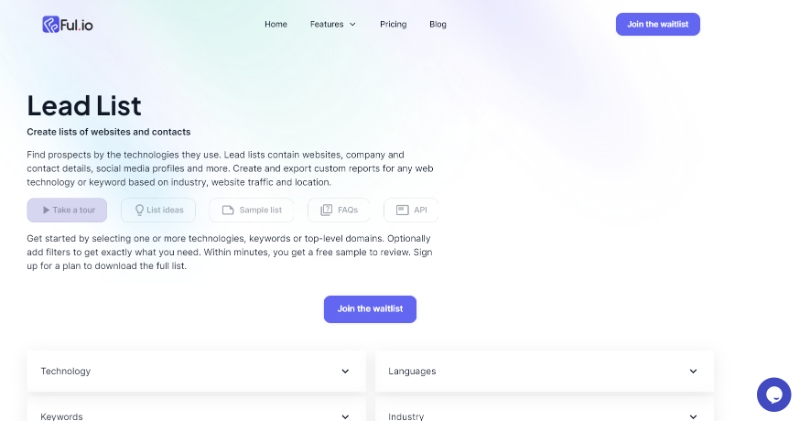
We also excel at identifying bugs and the impact of patches. Lastly, we haven't just raised the bar but completely removed it by providing unlimited access to our APIs. Join the waitlist, stand a chance to win our early bird offers, and get ready to build a bankable analytics dataset.
SimilarTech
One reason BuiltWith has users hooked to it is its cold prospecting ability. So, we present SimilarTech, which pretty much does a similar job for a cheaper plan. What's better is that it lets the user have a free account not limited by time, offering a glimpse at the SIP's potential. You can spot trends, markets, leads, and potential prospects. It is a steal for sales teams looking for sales intelligence solutions.
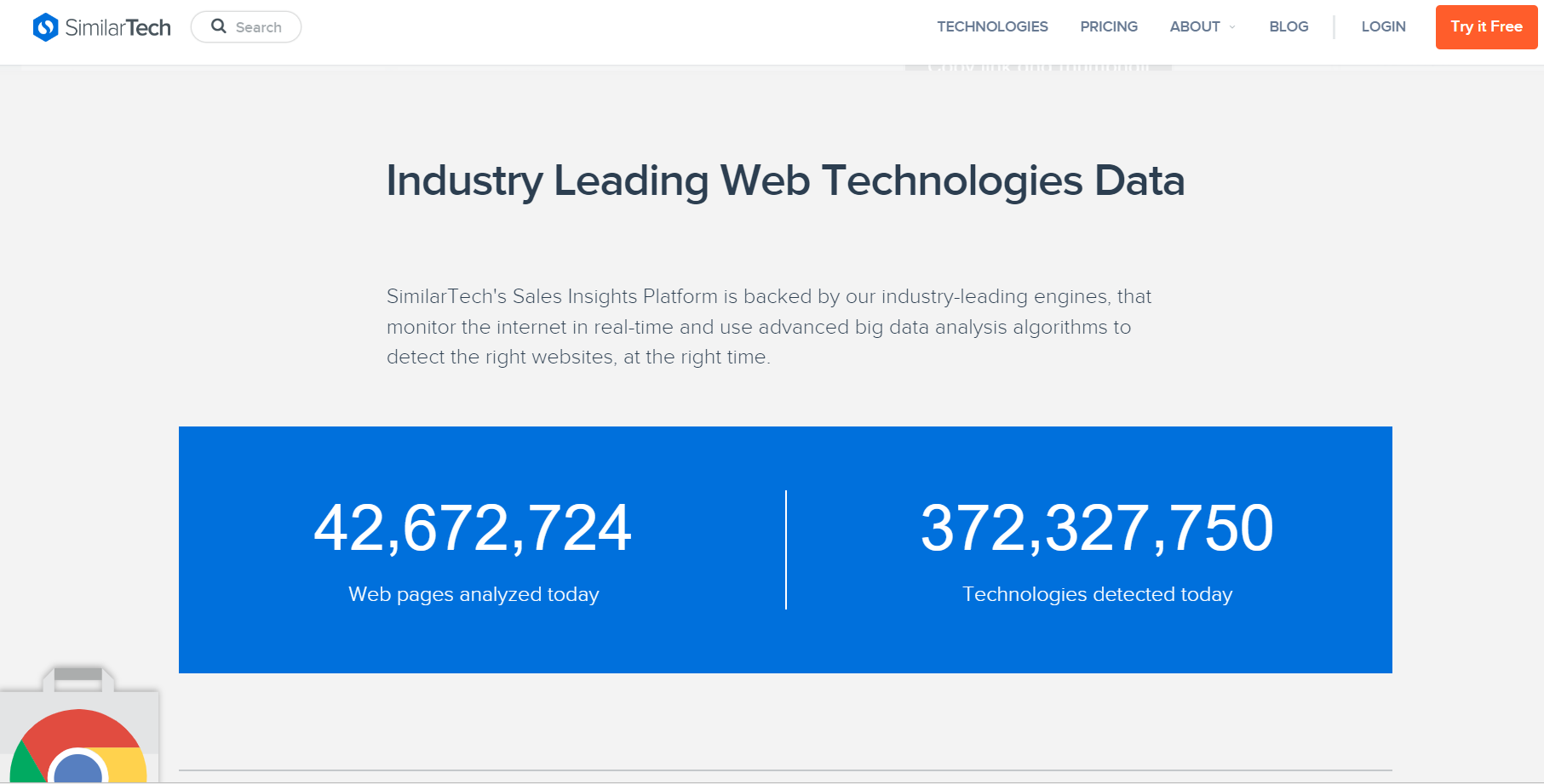
The final verdict
Here's what we have got to say. If you are okay with mounds of data crowding your screen and waiting to empty a fat wallet, there is no harm in trying BuiltWith API. On the other hand, if you are trying to mend the burnt hole in your pocket, try one of the alternatives. The wise way would be to pick one based on your needs.
Feel free to read more such articles here!
